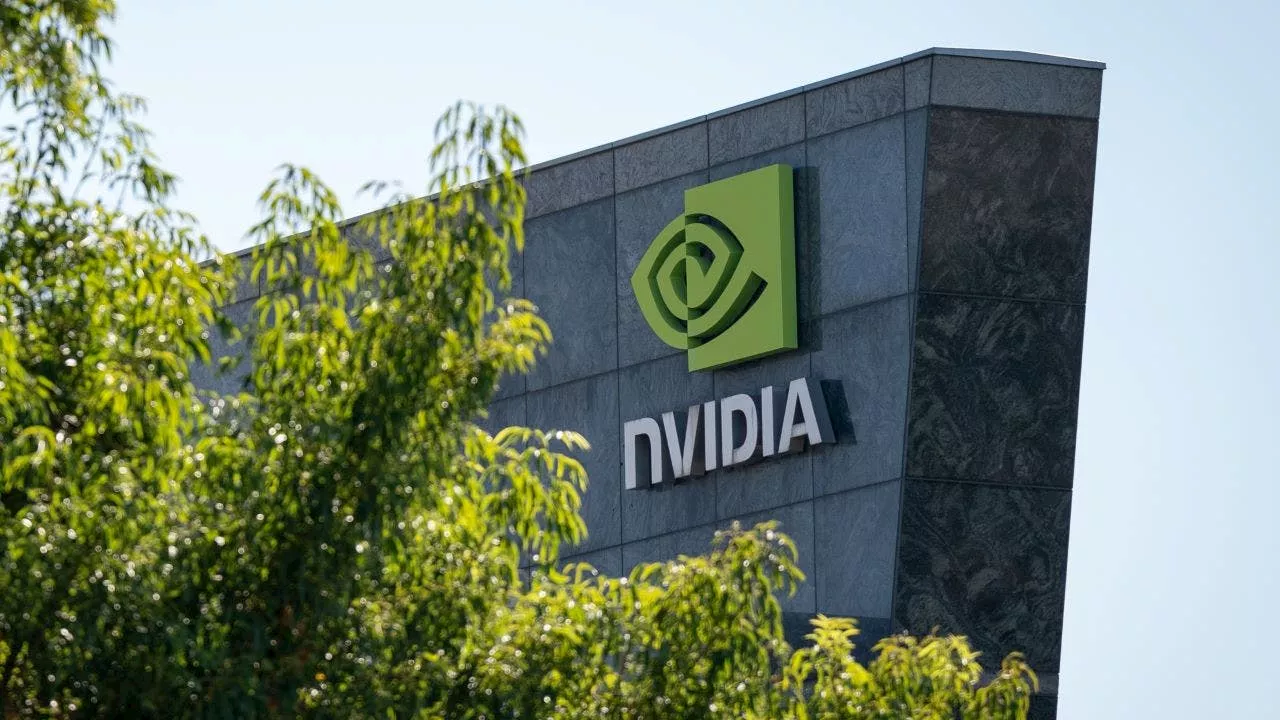Nvidia, a leading tech company, criticizes the Biden administration's new AI diffusion rule, arguing that it hinders global innovation and economic growth. The rule aims to control the flow of advanced AI chips to foreign countries, particularly those perceived as adversarial. However, Nvidia contends that the restrictions are overly broad and threaten to stifle competition and American technological leadership.
Tech giant Nvidia is voicing strong opposition to a new executive order issued by the Biden administration aimed at preventing artificial intelligence (AI) technologies developed in the U.S. from falling into the hands of countries deemed adversarial. The White House unveiled the new AI rule on Monday, outlining a strategy to encourage the 'diffusion' of U.S.
-made AI technologies to allied nations while simultaneously imposing restrictions on the sale of advanced chips to foreign entities that could pose a national security threat. Commerce Secretary Gina Raimondo emphasized the rationale behind the policy, stating, 'This policy will help build a trusted technology ecosystem around the world and allow us to protect against national security risks associated with AI, while ensuring controls do not stifle innovation or U.S. technological leadership.' She further explained, 'Managing these very real national security risks requires taking into account the evolution of AI technology, the capabilities of our adversaries, and the desire of our allies to share in the benefits of this technology.'However, Ned Finkle, Nvidia's vice president of government affairs, expressed deep concern about the potential consequences of the Biden administration's action. In a post on the company's website, Finkle characterized the 'unprecedented and misguided' AI diffusion rule as a threat to global progress in AI, stating that it 'threatens to derail innovation and economic growth worldwide.' He argued that the sweeping overreach would subject America's leading semiconductors, computers, systems, and even software to bureaucratic control over their global design and marketing. Finkle also warned that by attempting to manipulate market outcomes and hinder competition, the Biden administration's new rule risks squandering America's hard-earned technological advantage. While the rule purports to be an 'anti-China' measure, Finkle contends that it would be ineffective in enhancing U.S. security and would instead control technology worldwide, including technology already widely available in mainstream gaming PCs and consumer hardware.Despite not being enforceable for 120 days, Finkle asserts that the rule is already undermining U.S. interests. He believes that America's success is driven by innovation, competition, and the sharing of technology with the world, not by retreating behind a wall of government overreach. Finkle expresses hope for a return to policies that strengthen American leadership, bolster the economy, and maintain its competitive edge in AI and beyond.The Biden administration's AI diffusion rule does create exceptions for exports of advanced AI chips to 18 key U.S. allies and partners that adhere to technology protection regimes aligned with U.S. national security and foreign policy interests. This exception enables these nations to carry out large-scale purchases of advanced AI chips without needing a license and without counting against national chip caps. The White House estimates that most chip orders fall within this exception, allowing for significant transfers of computational power. The rule also establishes a 'Universal Verified End User' status for entities meeting security and trust standards and headquartered in close U.S. allies, granting them access to place up to 7% of their global AI computational capacity overseas. A 'National Verified End User' designation is also created for entities headquartered outside countries of concern, allowing access to up to 320,000 advanced GPUs over a two-year period. The rule continues to restrict advanced AI chips from reaching countries of concern while permitting access to general-purpose applications and preventing the transfer of AI chips to non-trusted actors
AI Artificial Intelligence Nvidia Biden Administration Chip Exports National Security Innovation Competition Global Technology
United States Latest News, United States Headlines
Similar News:You can also read news stories similar to this one that we have collected from other news sources.
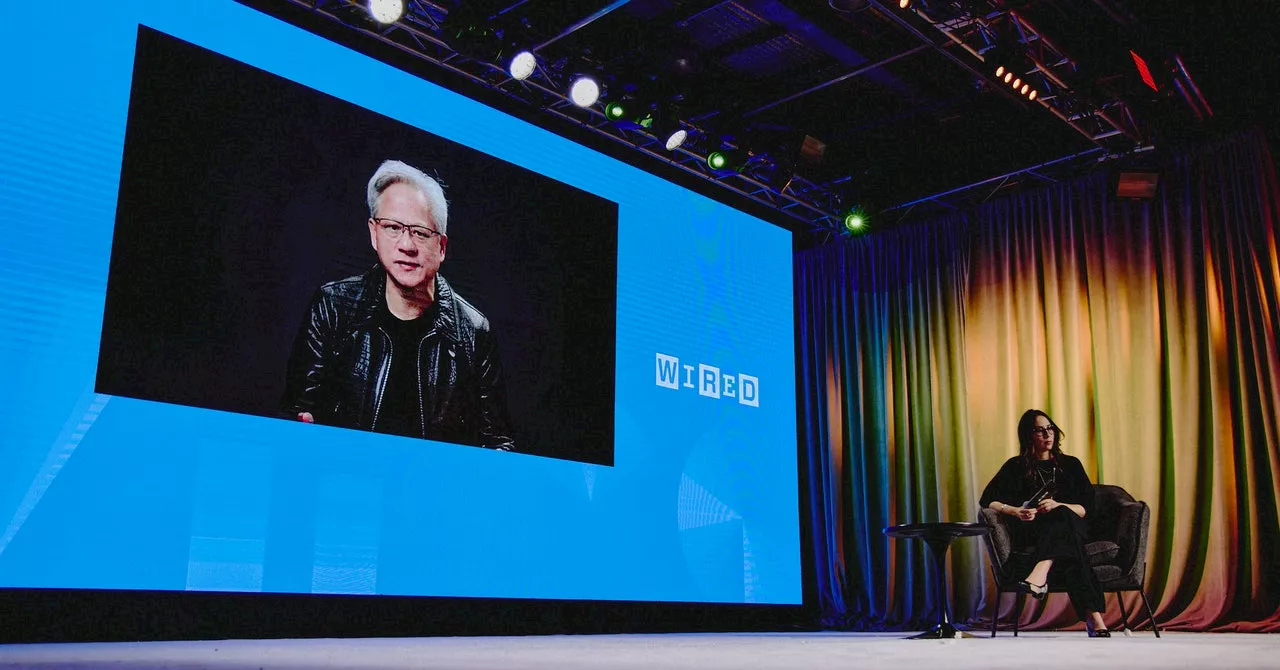 Nvidia CEO Jensen Huang Pushes for National AI InfrastructureNvidia CEO Jensen Huang believes artificial intelligence (AI) is reshaping computing and urges governments worldwide to build their own AI infrastructure. He sees AI as the future's energy and communications infrastructure, akin to the internet's initial development. Huang is actively pitching this vision to governments, emphasizing the importance of processing national data and developing independent AI systems. Thailand is the latest nation to join a growing list of at least 10 countries collaborating with Nvidia on AI infrastructure projects.
Nvidia CEO Jensen Huang Pushes for National AI InfrastructureNvidia CEO Jensen Huang believes artificial intelligence (AI) is reshaping computing and urges governments worldwide to build their own AI infrastructure. He sees AI as the future's energy and communications infrastructure, akin to the internet's initial development. Huang is actively pitching this vision to governments, emphasizing the importance of processing national data and developing independent AI systems. Thailand is the latest nation to join a growing list of at least 10 countries collaborating with Nvidia on AI infrastructure projects.
Read more »
 Nvidia CEO Pushes for Global AI Infrastructure DevelopmentNvidia CEO Jensen Huang believes the rise of AI is akin to the emergence of energy and communications infrastructure, advocating for a global shift towards AI-powered systems. He is actively pitching governments worldwide to invest in their own national AI infrastructure, processing local data and utilizing Nvidia chips. This strategy has gained traction, with at least 10 countries, including Thailand, Denmark, Japan, Indonesia, and India, committing to AI infrastructure projects with Nvidia.
Nvidia CEO Pushes for Global AI Infrastructure DevelopmentNvidia CEO Jensen Huang believes the rise of AI is akin to the emergence of energy and communications infrastructure, advocating for a global shift towards AI-powered systems. He is actively pitching governments worldwide to invest in their own national AI infrastructure, processing local data and utilizing Nvidia chips. This strategy has gained traction, with at least 10 countries, including Thailand, Denmark, Japan, Indonesia, and India, committing to AI infrastructure projects with Nvidia.
Read more »
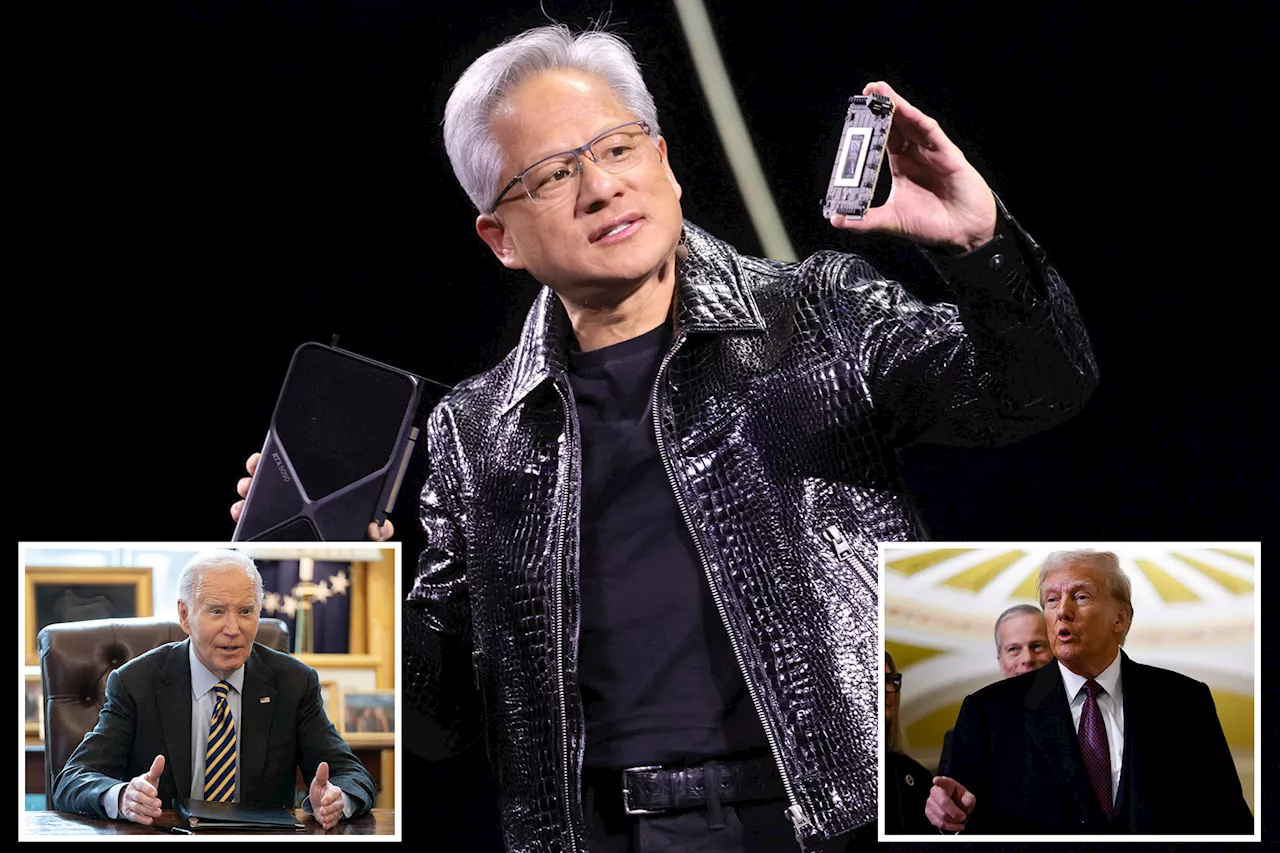 Nvidia blasts Biden admin over 'misguided' AI chip restrictions, praises TrumpThe Biden administration has issued its last set of restrictions on exporting AI chips, aiming to block rivals like China and Russia from accessing advanced technology. The restrictions, announced days before President Biden leaves office, escalate tensions with Beijing while drawing criticism from US tech giants like Nvidia and Oracle.
Nvidia blasts Biden admin over 'misguided' AI chip restrictions, praises TrumpThe Biden administration has issued its last set of restrictions on exporting AI chips, aiming to block rivals like China and Russia from accessing advanced technology. The restrictions, announced days before President Biden leaves office, escalate tensions with Beijing while drawing criticism from US tech giants like Nvidia and Oracle.
Read more »
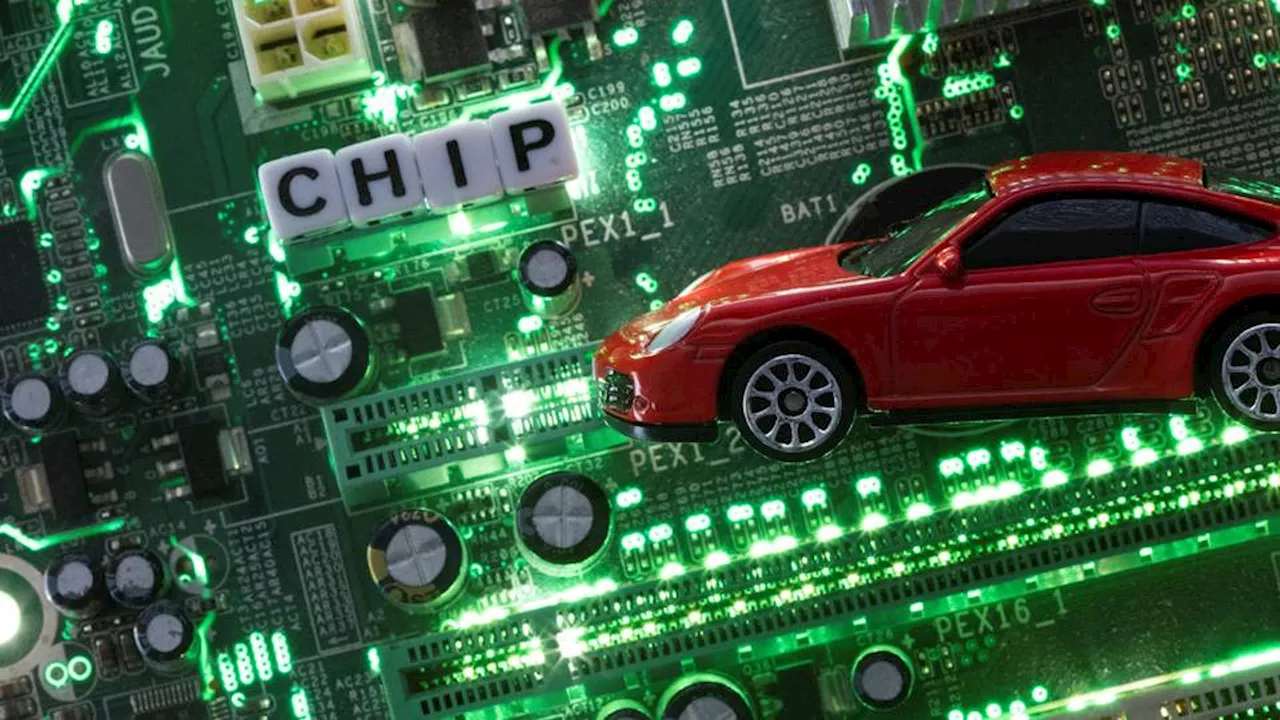 Nvidia warns Biden's AI chip export caps could harm US, global marketsUS President Joe Biden's last-minute AI chip export plans spared Nvidia's criticism highlighting potential economic harm and urging restraint before Trump assumes office.
Nvidia warns Biden's AI chip export caps could harm US, global marketsUS President Joe Biden's last-minute AI chip export plans spared Nvidia's criticism highlighting potential economic harm and urging restraint before Trump assumes office.
Read more »
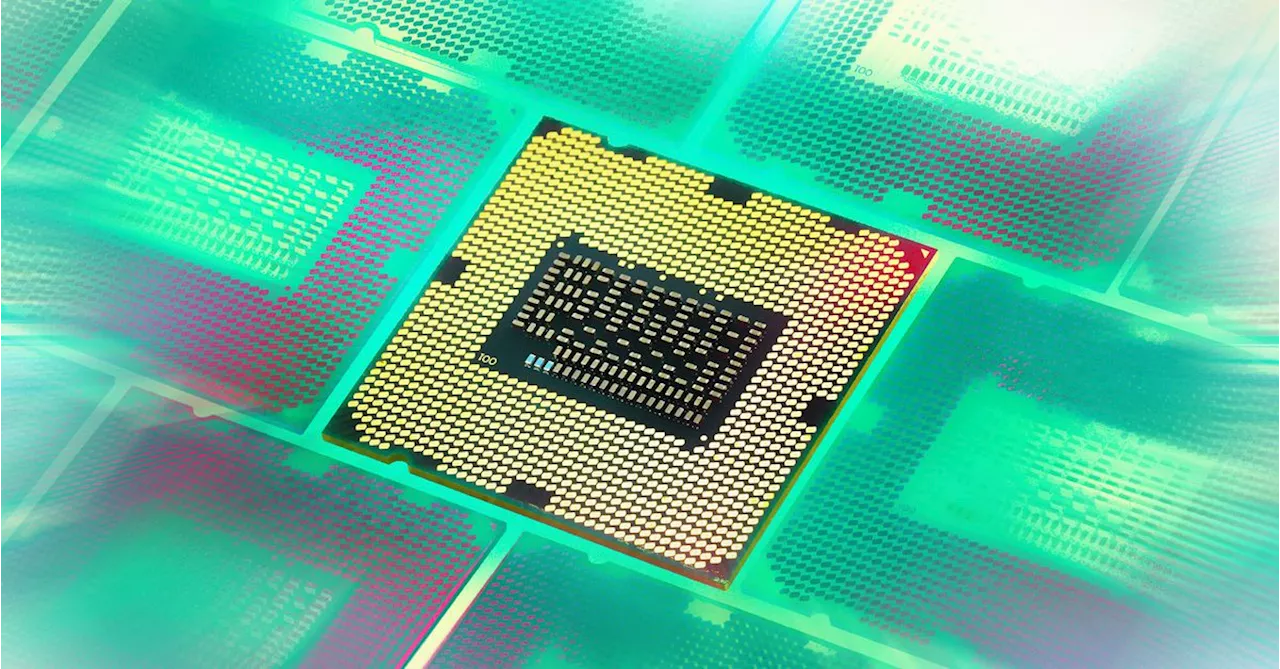 Nvidia flatters Trump in response to Biden’s new AI chip restrictionsNvidia is cozying up to the incoming Trump administration after criticizing the Biden administration's new AI rules for keeping AI chips and models under US controls.
Nvidia flatters Trump in response to Biden’s new AI chip restrictionsNvidia is cozying up to the incoming Trump administration after criticizing the Biden administration's new AI rules for keeping AI chips and models under US controls.
Read more »
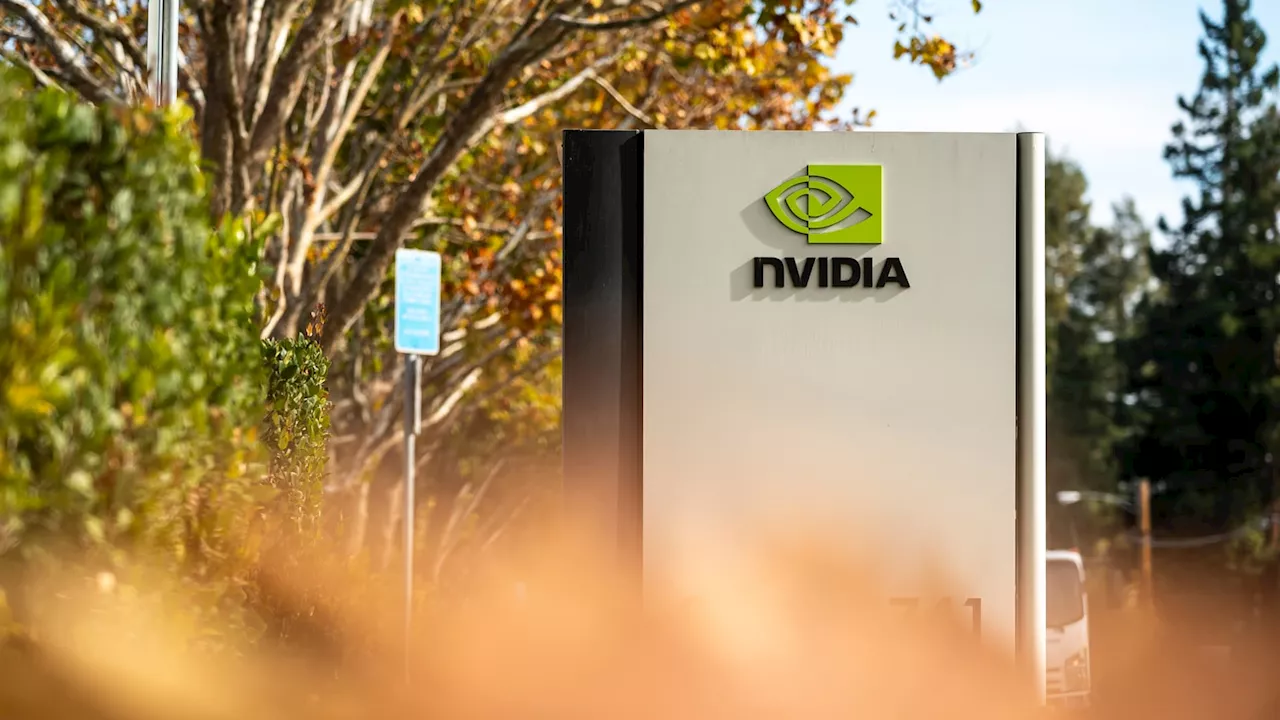 Biden Administration Issues Broad AI Chip Export Rules, Sending Nvidia Shares LowerIn a last-minute move before leaving office, the Biden administration announced sweeping new regulations on the export of artificial intelligence chips, aiming to curb China's access to advanced computing technology. The rules, which would place global licensing requirements on AI chip exports, sent Nvidia shares tumbling. The move has sparked criticism from industry leaders who argue that the rushed implementation and broad scope of the regulations could harm American competitiveness.
Biden Administration Issues Broad AI Chip Export Rules, Sending Nvidia Shares LowerIn a last-minute move before leaving office, the Biden administration announced sweeping new regulations on the export of artificial intelligence chips, aiming to curb China's access to advanced computing technology. The rules, which would place global licensing requirements on AI chip exports, sent Nvidia shares tumbling. The move has sparked criticism from industry leaders who argue that the rushed implementation and broad scope of the regulations could harm American competitiveness.
Read more »
